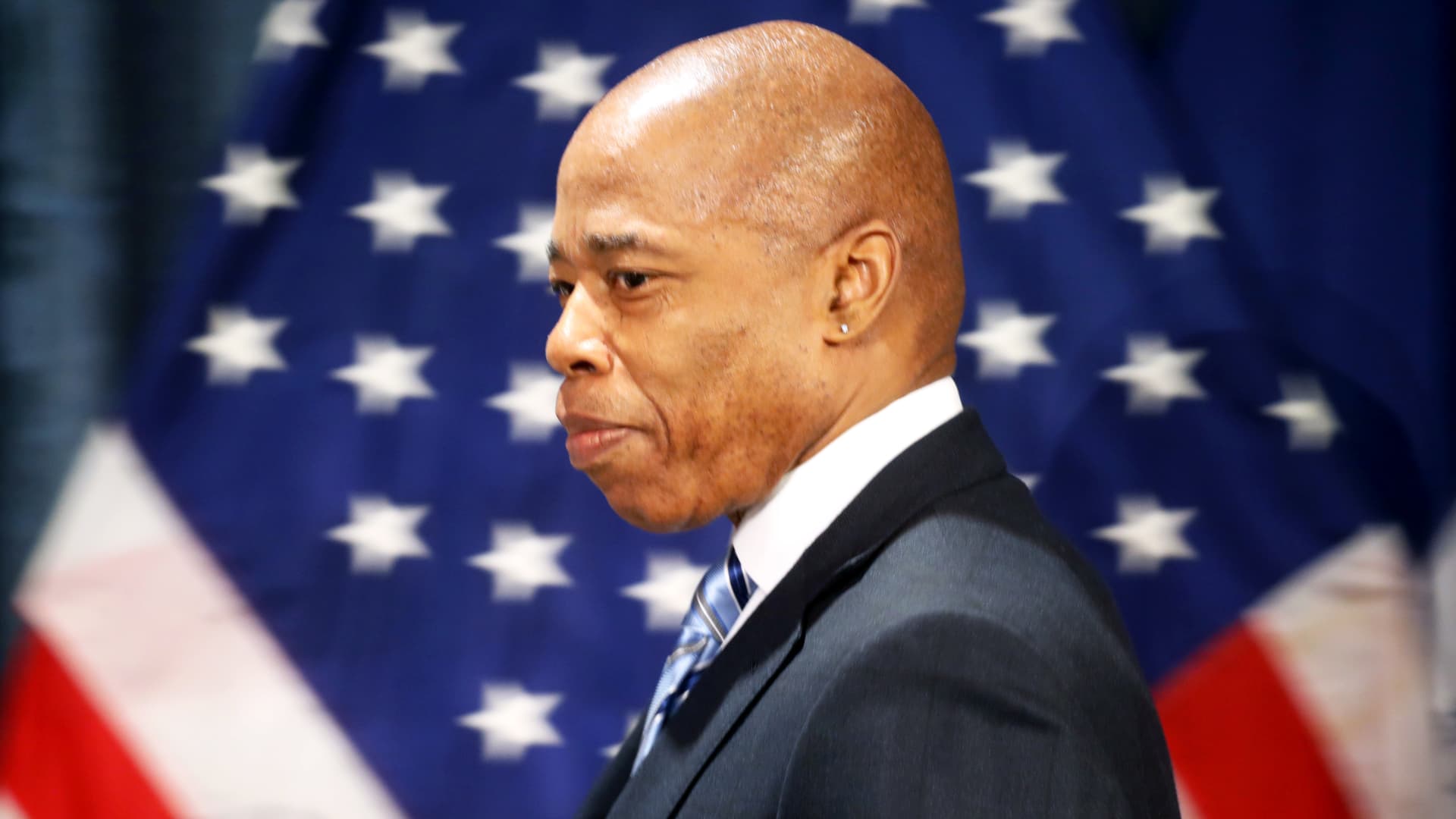New York City Mayor Eric Adams said Wednesday that his administration has filed a lawsuit against the parent companies of TikTok, Instagram, Facebook, Snapchat and YouTube, alleging that their services are damaging to the mental health of young adults and children in the largest U.S. city.
The city of New York along with plaintiffs including the school district and health organizations filed the lawsuit in the Los Angeles county branch of the California Superior Court because of the companies’ ties to the area, attorneys wrote in the filing.
The suit alleges that Meta, Snap, ByteDance and Google (whose parent company is Alphabet) knowingly “designed, developed, produced, operated, promoted, distributed, and marketed their platforms to attract, capture, and addict youth, with minimal parental oversight.”
The plaintiffs allege that the tech companies violated several city laws related to public nuisance and gross negligence through the design and marketing of their addictive products. They claim that New York’s school districts and various health and social services have been severely impacted by children who have suffered negative mental health consequences stemming from their use of popular social media apps.
“Over the past decade, we have seen just how addictive and overwhelming the online world can be, exposing our children to a non-stop stream of harmful content and fueling our national youth mental health crisis,” Adams said in a statement. “Today, we’re taking bold action on behalf of millions of New Yorkers to hold these companies accountable for their role in this crisis, and we’re building on our work to address this public health hazard. This lawsuit and action plan are part of a larger reckoning that will shape the lives of our young people, our city, and our society for years to come.”
A TikTok spokesperson said in an statement that the company has “industry-leading safeguards” for teens, including parental controls and features for age restrictions.
“We regularly partner with experts to understand emerging best practices, and will continue to work to keep our community safe by tackling industry-wide challenges,” the spokesperson said.
A Google representative said the allegations are “simply not true.”
“Providing young people with a safer, healthier experience online has always been core to our work,” Google said. “In collaboration with youth, mental health and parenting experts, we’ve built services and policies to give young people age-appropriate experiences, and parents robust controls.”
Meta said it’s “spent a decade working on these issues” and wants “teens to have safe, age-appropriate experiences online, and we have over 30 tools and features to support them and their parents.”
A Snap spokesperson said that “Snapchat was intentionally designed to be different from traditional social media,” focusing on facilitating conversations with close friends.
“Snapchat opens directly to a camera – rather than a feed of content that encourages passive scrolling – and has no traditional public likes or comments,” the Snap spokesperson said. “While we will always have more work to do, we feel good about the role Snapchat plays in helping close friends feel connected, happy and prepared as they face the many challenges of adolescence.”
New York’s lawsuit echoes similar allegations made against Meta, Snap, TikTok and Alphabet in litigation filed in 2022 in the Northern District of California. Multiple school districts and individuals claim the companies’ products “are defective because they are designed to maximize screen time” and that they have resulted in various emotional and physical harms, including death.”
Social media companies have come under fire from lawmakers who are pushing multiple bills like the Kids Online Safety Act, or KOSA, as part of a broader appeal for regulation. Meta CEO Mark Zuckerberg, TikTok CEO Shou Zi Chew and Snap CEO Evan Spiegel attended a Senate Judiciary hearing in late January and faced tough questions from a bipartisan group of lawmakers about their alleged negligence in protecting kids.
Meanwhile, a coalition of over 40 attorneys general filed a joint federal lawsuit against Meta alleging that its products are addictive and harm mental health.
WATCH: Meta CEO Mark Zuckerberg apologizes to parents at online child safety Senate hearing
